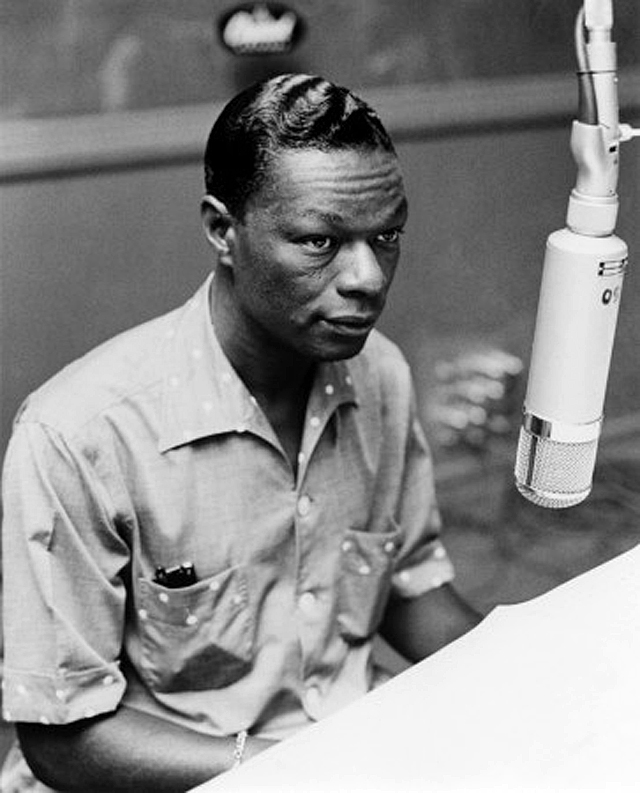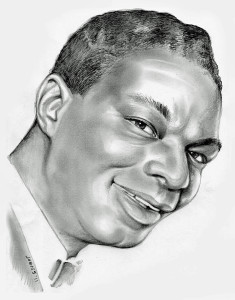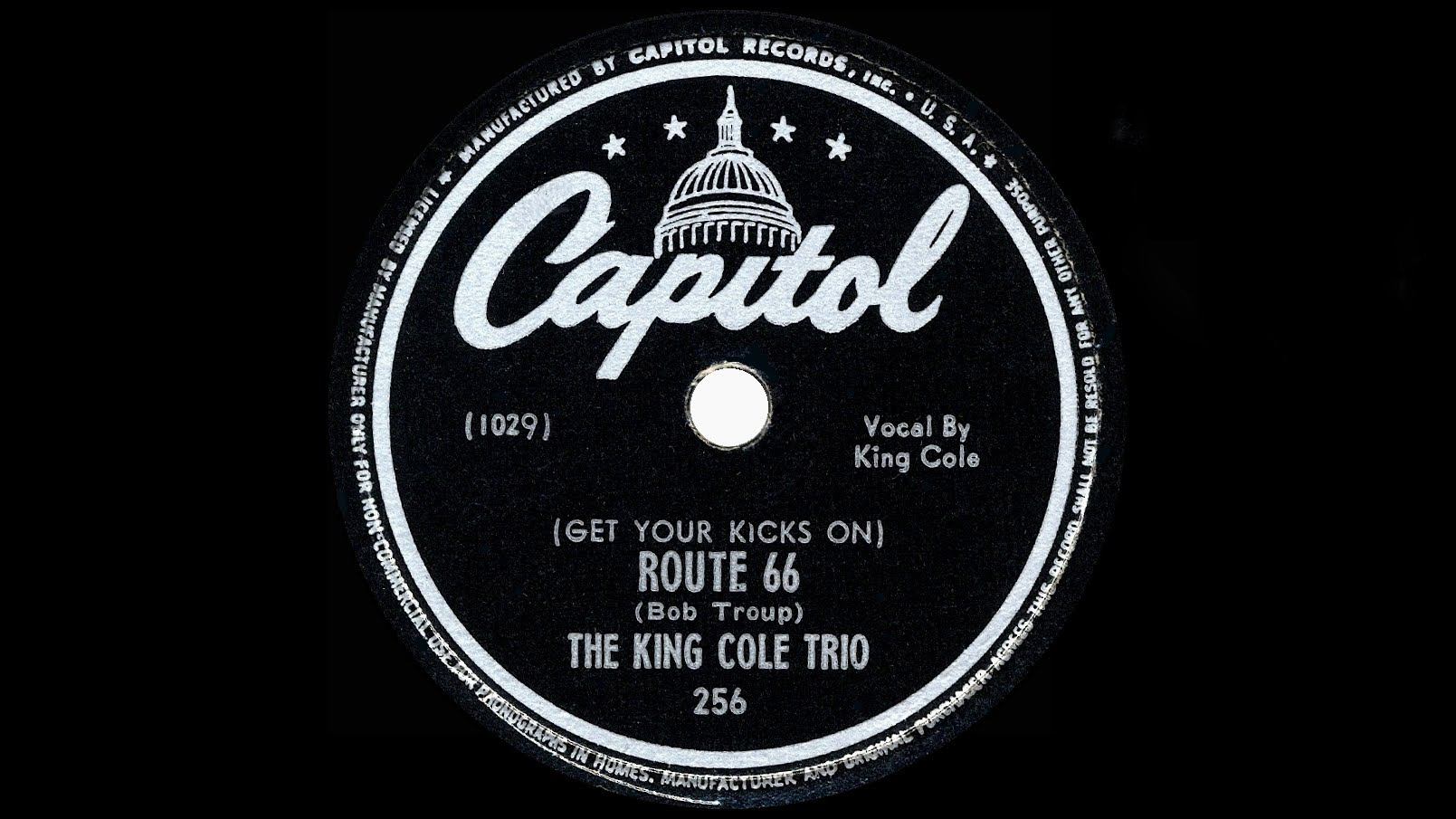From the Los Angeles Times Archives: February 16, 1965
By PAUL WEEKS
Times Staff Writer
February 16, 1965
___
LOS ANGELES — Nat “King” Cole, 45, world-renowned singer and jazz pianist, died in his sleep at St. John’s Hospital in Santa Monica early Monday, three weeks after he had undergone surgery for removal of a cancerous left lung.
His wife Maria, who was at his side, “knew for several days he was dying,” a hospital spokesman said, “but she didn’t want anything made public because he watched television constantly.”
Aware that he had cancer, the singer thought he was recovering after the removal of his lung, but doctors said the disease had spread beyond control.
Only the day before his death, Cole was taken for a short ride in his car by his wife, and a few days earlier he had visited his children briefly at the family home, an imposing brick mansion at 401 S. Muirfield Road in the Hancock Park district.
Visitors Barred
Visitors were not permitted in Cole’s sixth-floor hospital room. But last week, when comedian Jack Benny was visiting another friend, he inquired about Cole, and the singer invited him in for a 15-minute chat.
Interviews were not allowed, but because of worldwide interest in the singer’s recovery, Mrs. Cole wrote and released her own optimistic statements — as if they had come from him.
The singer’s father, the Rev. Edward B. Coles of North Chicago, died two weeks ago in Chicago.
“We had to tell Nat, and I guess it made him turn for the worse,” his brother Eddie said in Honolulu. “He loved our dad. We could see him change right then.”
Mother Died in 1955
Cole’s mother, Perlina, died at the age of 61 in Chicago in 1955, of cancer.
Funeral services for the singer have not been completed, but a family spokesman said they probably will be private, at 11 a.m. Thursday in St. James Episcopal Church, 3903 Wilshire Blvd., with the Angelus Funeral Home in charge.
An outpouring of his admirers is expected Wednesday, however, when the sealed casket will be on view to the public in the church from 3 p.m. until 10 p.m.
The first intimation of Cole’s illness came late last fall when he was forced to cancel an engagement at the Sands in Las Vegas because of what was described as a “respiratory ailment.”
On Dec. 9, two days before he was to have presented the inaugural popular music and jazz concert at The Music Center, he was taken to St. John’s Hospital, where X-rays disclosed the lung tumor. Cobalt treatments were initiated.
Frank Sinatra substituted for him with an all-star cast, as “King Cole Salutes The Music Center” drew a capacity crowd to The Pavilion on Dec. 11.
When the serious nature of Cole’s illness was disclosed, he was deluged with mail, telegrams and calls — more than had been received by anyone else in the hospital, which often has celebrity patients.
Dies in Sleep
Although his condition took a sharp turn for the worse two days ago, Cole was cheerful and alert Sunday, the hospital said. Death came quietly in his sleep. He was pronounced dead at 5:30 a.m.
The entertainment world was stunned, because Mrs. Cole had succeeded in keeping his true condition secret from the public — and from him.
Besides his wife he leaves three daughters, Natalie, 15, and twins Timolin and Casey, 3; two adopted children, Carol, 20, and Nat Kelly, 6; three brothers, Eddie in Honolulu, Fred in New York City and Ike in Chicago, and a sister, Miss Evelyn Cole, of Chicago.
Council Adjourns
Mrs. Cole has requested memorial tribute donations be made to the Eleanor Roosevelt Cancer Foundation, 219 E. 42nd St., New York City, or the California Institute for Cancer Research at UCLA.
The City Council adjourned in Cole’s memory Monday. The Board of Supervisors ordered flags of The Music Center, of which Cole was a Founder, lowered to half-staff.
Nat Cole’s life was one of fluctuating economic extremes, but at the end he could command $20,000 a week.
Born Nathaniel Adams Coles on March 17, 1919, in Montgomery, Ala., the son of a Baptist minister, he was taken to Chicago at the age of 4. He dropped the “s” from his name in early entertainment billings.
“Mom was the only music teacher I ever had,” he once said — recalling that he played “Yes, We Have No Bananas” on a piano when he was 4.
After playing in a high school dance band, he went to California with a revue, “Shuffle Along,” that went broke in Long Beach in 1937.
While he was with the show he married Nadine Robinson, a dancer. They were divorced in 1946.
After the revue folded in 1937, Cole said he “played piano at almost every beer joint from San Diego to Bakersfield” until he got a job for a jazz quartet at the Swanee in Hollywood.
The drummer never showed up but the famous Nat King Cole Trio was born.
Name Stuck
Oscar Moore was on guitar and Wesley Prince on string bass, and they created a style that set generations to swinging.
Legend has it that an inebriated customer once jammed a paper hat onto the pianist’s head, and proclaimed, “Look! King Cole!” The name stuck.
And later, another barfly is said to have ordered Cole to sing, “Sweet Lorraine.”
“We don’t sing,” Nat said.
‘Natural Boy’ a Hit
The manager whispered that the man was a big spender — so the satin voice that was to capture a world of listeners was first heard publicly.
Cole’s first hit recording was his own “Straighten Up and Fly Right” in 1943 for Liberty Records (now Capitol), and he was on his way.
His wedding to Maria Ellington, a vocalist in the Duke Ellington band — but no relation to the leader — was a $17,500 social event in 1947, at a time when the King was riding high on his recording of the haunting “Nature Boy.”
In 1948, Cole was philosophical about race discrimination dogging him even into the high-rent district. When he and his bride bought their $65,000 Tudor mansion in Hancock Park, an attorney for nearby property owners said, “We don’t want undesirable people coming here.”
“Neither do I,” Cole said, “and if I see anybody undesirable coming into this neighborhood, I’ll be the first to complain.”
Attacked on Stage
But in 1951, the government seized the house, charging Cole with being $150,000 in arrears on taxes. He set a goal of paying off the debt at $1,000 a week, and kept the house.
Two years later, from the pressure of the pace he set for himself, he collapsed of acute ulcers and internal hemorrhaging during an Easter concert at Carnegie Hall in New York City. Surgeons removed half his stomach.
The singer tried to live a more leisurely pace after that, but the times vaulted him into headlines again when six white men attacked him on a stage at Birmingham, Ala., in 1956 before an audience of 4,000.
Although he gave freely of himself in benefit performances for civil rights groups, there were still some who complained he wasn’t militant enough.
“A celebrity can overplay his hand talking too much,” he said, “when there ought to be more doing and less talking.”
A personal friend and White House guest of Presidents Kennedy and Johnson, Cole was outspoken on the race issue. He bemoaned an age that accepted Negro entertainers “as no threat to anybody,” while Negro doctors, lawyers and educators were denied similar recognition.
Cole launched a television show that drew tremendous ratings and reviews, but closed in 1957 after 64 weeks because national advertisers would not then back a Negro, he said.
Had Many Fans
He stayed with it despite financial losses, drawing the biggest “guest” names in entertainment, who agreed to appear far below the price they usually received — hoping to make a success of it.
His international following was no less than it was in America. Once when then Vice President Richard M. Nixon was met with violent demonstrations in Caracas, Venezuela, Cole followed a few days later and was welcomed by an enthusiastic crowd of 16,000 at the airport.
He met similar acclaim in Europe (he played in a command performance for Queen Elizabeth in 1960), in the Middle East and the Orient.
His income was estimated at $500,000 annually, and his record sales reached more than 50 million.
Cole, an inveterate cigaret and pipe smoker, gave up cigarets for several months last year but had returned to them before he was admitted to the hospital.
Among his all-time best-selling records were “Mona Lisa,” “Too Young,” “For Sentimental Reasons,” “Pretend,” “Answer Me My Love,” “Rambling Rose,” “Christmas Song” and “Smile.”
The messages of condolence poured in Monday from the great and the nameless for a man they regarded as fitting his own words the best of all. END

Copyright 1965, The Los Angeles Times. Information and news source: LA TIMES; February 16, 1965
![]()







